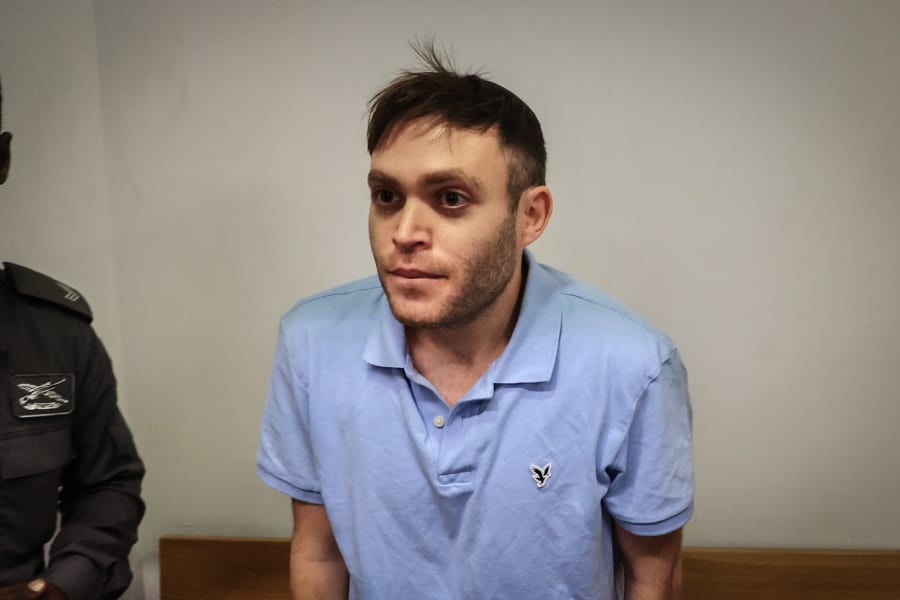Did a ‘foreign actor’ play a role in Oct 7 invasion? 'Leaked Documents Case' takes a shocking turn
Six intelligence officers were reportedly blocked from alerting political leadership

The “Leaked Documents Case,” involving allegations against a former aide to Prime Minister Benjamin Netanyahu and an IDF intelligence reservist accused of leaking classified information, has held the attention of Israel’s media for months.
While much of the initially censored information around the case against Eli Feldstein has been revealed, including the identity of the second main suspect, Ari Rosenfeld, the case continues to take surprising turns.
When the indictment against Feldstein was revealed last November, it contained a partially blacked-out passage that described how Rosenfeld contacted him on WhatsApp, offering him "secret information" he came across during his military reserve service.
“He had, among other things, secret information about the possible involvement of [censored] in the events of October 7, 2023,” the passage reads.
Responding to reports about this passage, the Justice Ministery confirmed that the blacked-out part “does not refer to the names of people or organizations, but to a foreign actor.”
It is not publicly known whether this estimation was officially accepted by the security system. The identity of this alleged actor, and the role he is said to have played in the invasion, also remain unknown.
However, on Wednesday, Ynet News reported that six other IDF intelligence reservists had created a detailed intelligence report about the actor's involvement after the Hamas attack on Oct. 7, 2023, and offered this report to Knesset Member Amit Halevi of Netanyahu’s Likud party.
They turned to Halevi alleging that the Intelligence Directorate (Aman) was obstructing the transfer of the document to the political echelon.
Ynet's report suggested that Halevi checked with the National Security Council to confirm whether the report was known to them. Upon being informed that they were not, the intelligence officers reportedly contacted Rosenfeld, who then passed the information to Feldstein to ensure it reached the prime minister.
The three soldiers and three officers from various units in Aman, along with members of another intelligence agency whose identity remains undisclosed, reportedly teamed up after the invasion to put together a major study about the involvement of the foreign actor. They acted under the belief the political echelon was unaware and needed to be informed.
Ynet stressed that it couldn’t verify whether their report was indeed blocked and didn’t reach the political leadership.
After Halevi allegedly discovered that the security council was not aware of the report, Rosenfeld is believed to have met Feldstein at the synagogue of the IDF’s headquarters in Tel Aviv, where he handed him a portion of the document and requested he inform the prime minister personally.
Judge Alaa Masarwa wrote in December that Feldstein ultimately did not transmit the report to Netanyahu.
Feldstein knew the report “was based on confidential information and he kept it at his home and waited until the document was relevant in the context of the discussion on the Philadelphi Corridor,” he wrote.
Halevi declined to comment on Ynet’s report, but noted that the media coverage was meant to “continue the cruel revenge campaign of the prosecutor's office and other bodies against the righteous soldier Ari Rosenfeld.”
Coalition leaders and supporters of Feldstein and Rosenfeld have argued that the prosecution for leaking documents to the prime minister – who is, in any case, authorized to view them – aims to make an example out of those who try to challenge the alleged practice of security officials withholding information from the right-wing government.
Efraim Demari, an attorney on behalf of one of the six intelligence soldiers, denied that his client contacted Halevi and said he acted according to the recognized channels.
“The officer proceeded to transfer the document to authorized parties and through authorized channels only,” he said. “With no choice, and after the intelligence officials refused to sign the document and objected to its contents, the officer was required to present the study as a ‘different opinion’, which expresses a different position than that of Aman.”
On Dec. 9, the High Court ruled to release Feldstein to house arrest, while approving increased oversight through an electronic tracking device and allowing law enforcement to tap his electronic devices.
Rosenfeld’s defense attorney is continuing to petition the court for his release to house arrest. During a hearing on Tuesday, he argued that the recent statement by the director of Shin Bet, who said that releasing his client would not represent a national security risk, should justify his release.
Judge Masarwa instructed prosecutors to issue a response opinion to the Shin Bet statement but ruled that Rosenfeld would remain in detention pending a further hearing.

The All Israel News Staff is a team of journalists in Israel.
You might also like to read this:















